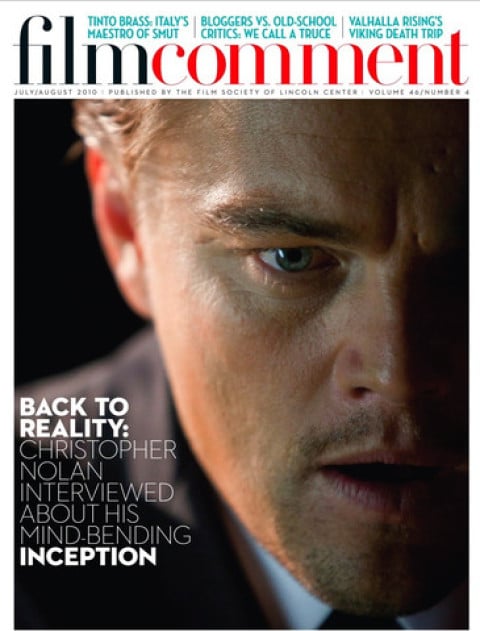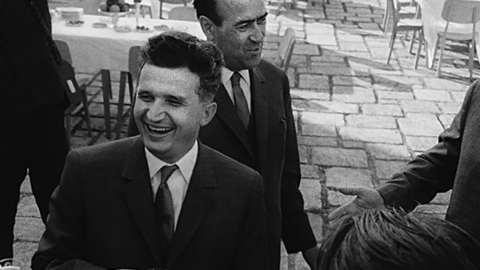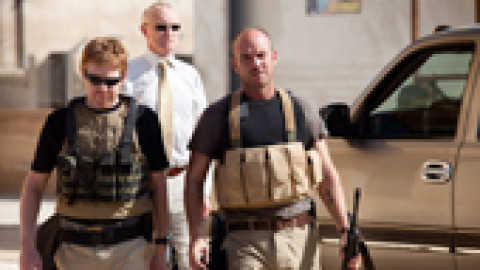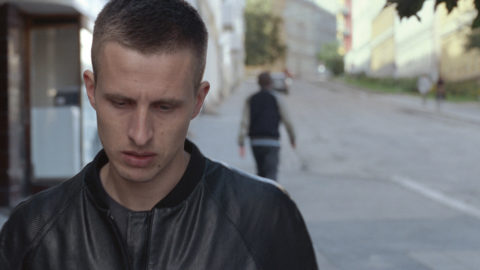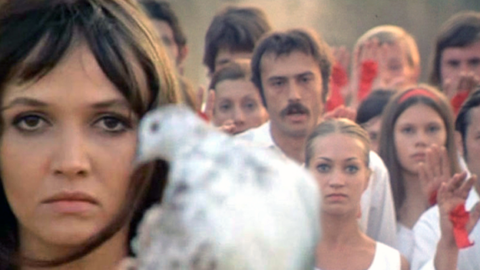Reports in the mainstream media on Cannes almost always focus exclusively on the films of the Competition program, so a weak year there (as this one was) tarnishes the impression of the festival as a whole. Yet Cannes is made up of multiple sections, and sometimes the real action is far from the red-carpeted steps of the Grand Théâtre Lumière.
Founded in the wake of the 1968 riots and shutdown of the festival, the Directors’ Fortnight was created to offer an alternative. Although a number of directors who started as Fortnight regulars later “graduated” to the Competition (Michael Haneke, Atom Egoyan), the section has always worked best when it shows works that would never stand a chance of being seen in the Competition—works that were simply too political, too experimental, or simply too offbeat. In his first year as artistic director of the Fortnight, Frédéric Boyer brought together a selection that felt fresh, provocative, and perhaps most importantly, a real alternative to what was being screened at the other end of the Croisette. I didn’t get to see all of the films there, but what I did see (about half) rarely disappointed.

We Are What We Are
Two films that especially impressed me were Jorge Michel Grau’s unsettling horror movie We Are What We Are and You Are All Captains by French-Spanish director Oliver Laxe. Cannes has always had trouble dealing with genre films, but Boyer placed them front and center. We Are What We Are opens on a middle-aged man stumbling across a Mexican street market and collapsing in a pool of blood. An autopsy reveals a human finger in his stomach. Back home, his three teenage children and formidable wife, who has a face like a pre-Columbian deity, try to figure out how they’re going to carry on without him—that is, how they’re going to run the family street stall and continue with what they call “The Ritual.” Gradually it becomes clear that they’re a family of cannibals. Whether it’s out of a sheer need for sustenance, or as a result of some larger phenomenon we don’t know, but cannibals they are, and fresh meat is high on the list of immediate needs. The film’s evasiveness on this point is a masterstroke; you keep waiting for an explanation that you finally realize just isn’t going to come.
The family’s attempts to catch prey take up a good deal of the action; in one amazing sequence, the two brothers attempt to abduct a street kid living under a highway, only to be fought off by his gang. One brother brings home somebody he picked up at a disco, raising the palpable sexual tension among the siblings almost to the boiling point. Grau’s main reference point for his film is Arturo Ripstein’s 1973 masterpiece, Castle of Purity, another tale of lower-middle-class angst gone mad. But whereas Ripstein’s family turned its back on the world, Grau’s seems terrifyingly a part of it. A subplot involving a police investigation is the weakest part of the film, but regardless, We Are Who We Are remains an impressive debut.

You Are All Captains
Born in Paris of Spanish parents, Oliver Laxe went to Tangiers after finishing college to set up a film workshop for kids. You Are All Captains tells the story of a European filmmaker who goes to Tangiers to make a film with kids. As you might expect, the lines between fiction and nonfiction blur pretty quickly, but while this formula is familiar, it’s so perfectly executed that the film never feels predictable. There are regular flashes of incredible power throughout the film, as the feelings of the children suddenly burst through. Just long enough at a brisk 78 minutes, the film went on to win the FIPRESCI prize for best Fortnight film.



